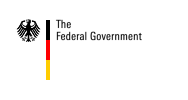Merkel referred to doubts in the minds of many people in Europe: "There are lots of people in Europe who ask themselves questions like: What is Europe supposed to be? What do we need it for? What will hold it together? Was is it constituted by?"
These questions need to be answered. Europe lives from its diversity. But diversity in and of itself cannot be considered a universal principle. Diversity presupposes the existence of freedom. "The human quality that enables us to live in freedom and at the same time to feel a sense of responsibility for others is a valuable moral asset. This quality is tolerance."
Seeing through the eyes of others
There is a very simple way of embodying tolerance, this core European value of ours: "You need to see through the eyes of others. It is a fascinating adventure to discover the diversity of our continent, our own wealth thus, though the eyes of the many peoples of Europe."
This is what we have been looking and striving for. "Peaceful coexistence among peoples. That was and is the key objective of European integration."
Road map for European constitution
Merkel noted that the constitutional treaty is the first European treaty that expressly mentions tolerance as something that characterizes the member states. She declared the reflection phase over, saying: "We need to formulate new proposals by June. I will work to see to it that at the end of the German Presidency it will be possible to adopt a road map for the further constitutional process." She indicated that the constitutional process needs to be completed before the next European Parliament elections in 2009.
Call for European foreign minister
In her view it is only with a new constitution that it will be possible to address the major challenges of our time. She named two such challenges. The first is in the foreign and security policy area. She cited as examples the situation in Kosovo, the Middle East, Afghanistan, Africa, the transatlantic partnership with the United States, and the partnership with Russia.
"It is only by working together that we will be able to take on these challenges," she stressed. "We need to act in concert. It is precisely for this reason that we need a European foreign minister to direct European foreign policy. So that our words can be followed up by deeds."
Saving the welfare state
The second challenge she referred to was that of preserving the European welfare state system under the conditions brought about by globalization. "That is what the citizens of Europe expect of their governments," Merkel said.
She noted that when American economist Richard Florida studied the conditions under which economic development takes place in various regions of the world he found three factors to be of key importance: "… technology, talent, and tolerance. All three of these factors must come together for there to be sustained growth in cutting-edge technology areas."
Importance of Trio Presidency
It is impossible to deal with all these challenges in six months time. There is a need to overcome the brevity of six-month presidencies, which is why the Trio Presidency idea is so important.
"I take pleasure in initiating here in Strasbourg today the first Trio Presidency in the history of the European Union, together with my Portuguese and Slovenian counterparts."
Germany, Portugal, and Slovenia formed an eighteen-month Trio Presidency, the first time this has ever been done. In this framework Chancellor Merkel met with Portuguese Prime Minister José Sócrates and Slovenian Prime Minister Janez Janša after delivering her speech in the European Parliament.
